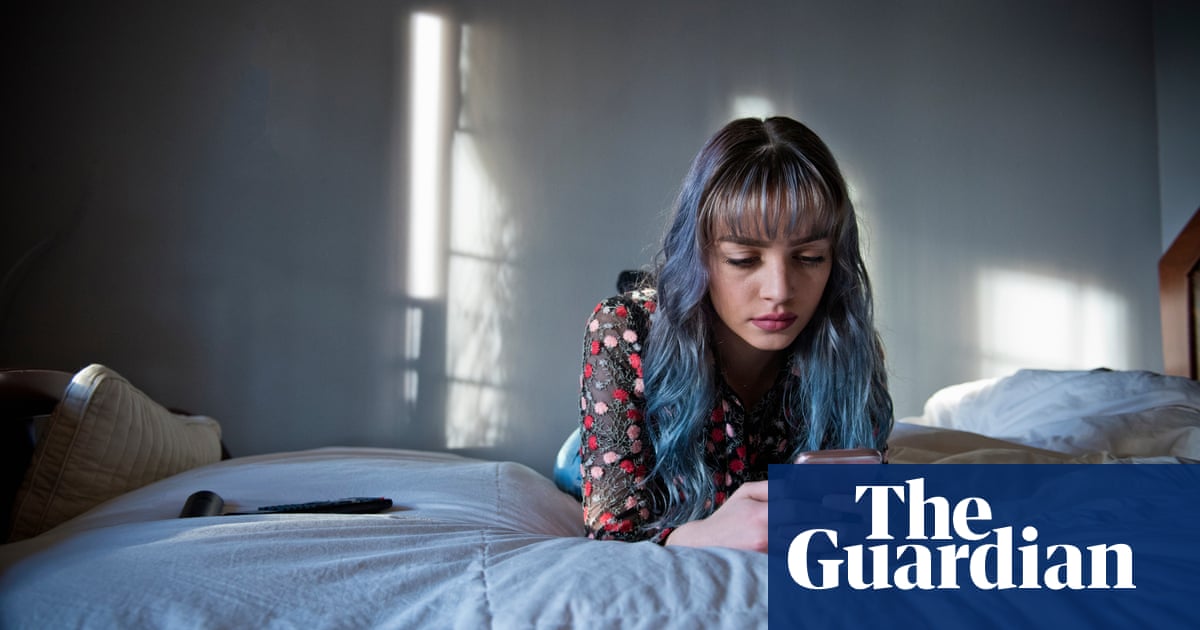Whether it’s a recipe for last night’s dinner, pictures of a recent trip to a gallery or a track-by-track review of Beyoncé’s new album, the routine of chronicling our daily lives and thoughts on social media is now so commonplace that it’s no longer clear what actually counts as oversharing.
But an emerging trend in which users are encouraged to post their most soul baring, often uncomfortable truths is taking online candour to a whole new level.
The latest craze on TikTok is known by its not so snappy title “social media is fake, here are things I’m ashamed to admit”, or, more commonly, by the hashtag #socialmediaisfake.
Admissions found in its searches include users sharing fears about financial security, mulling the prospect of never finding love and worrying about progression in life.
The hashtag has been deployed more than 26,000 times since March and the acoustic soundtrack connected to the trend has been used in more than 463,000 videos, with millions of views.
Oversharing has been a growing phenomenon on social media as gen Z – people born between 1996 and 2010 – in particular challenge the use of platforms as a medium for portraying idealised versions of everyday life.
Recent surveys have shown that young people are worried their lives will be worse than previous generations, with some describing feeling “hopeless” about the future. The 2024 world happiness report showed that young people are on course to become less happy than previous generations and are experiencing the equivalent of a midlife crisis.
Hannah, a TikTok user who has contributed to the #socialmediaisfake trend, says in a video: “I went to uni for five years and got my masters but I still work as a barista and earn minimum wage while all my peers are getting proper jobs.” Another user, Niki, says: “I’ve been unemployed for almost a year now because I took a risk and it didn’t work out.”
What in some posts can amount to commendable honesty about real generational struggles can also descend into more troubling disclosures that some have likened to a cry for help.
One user, Sana, posted: “I feel alone pretty much all of the time even though I have amazing friends, I can’t escape the feeling of loneliness.”
Another, Billie Jo, said she is 22 and has no qualifications as she has not been in full-time education due to “crippling mental health” which means she is “terrified of the real world and is unsure what [my] purpose is”.
The trend was started by a 26-year-old in Denmark with a post in March stating “eight things I am ashamed to say out loud”. Rikke Drue said she made the video after feeling lonely and insecure about her career. “It’s a way to express your feelings and get a hug back,” she added.
Despite having a degree and a good education, Drue said she still felt lost and the post was a way to release these feelings. “I’ve walked with these feelings constantly, and I always say I’ve taken a break from life because I don’t know what to do and I was just feeling super lonely with these thoughts,” she added.
The video has since amassed 1.3m views. In it she revealed insecurities about her skin, how she often compares herself and her life with what she sees on social media and her anxiety about whether she will ever be successful in finding love, a career and raising a family. Her love and hate relationship with LinkedIn also featured, as she said using the app is hard for her when she sees people flagging their career achievements.
“I thought my feelings weren’t anything special and people would struggle to connect, but when I posted the video it turned out a lot of other people felt the same way,” she said.
“Once I posted I was taken by storm and I’ve gone from having 700 followers to 5,000 and everyone has been so kind. I’ve received a lot of messages from people thanking me for sharing these thoughts I was having as they feel less alone with their situations.”
A large number of those taking part in the trend are women. Simon Gunning, the chief executive of the mental health charity Calm that works to combat suicide, believes trends like these can provide a safe haven for those who would usually suffer in silence.
“One woman under the age of 25 in the UK takes her own life every two days. These stats help to understand why the majority of people taking part in the social media is fake trend at the moment are women,” he said.
Suicide remains the biggest killer in men under 50, but the charity has found that women in crisis were not seeking help because of fears they would be seen as attention seeking, dramatic or emotional. Of the 20% that did seek help, according to Calm, one in five were told they were being dramatic and a further 20% were asked if they were on their period.
“There’s vital work that still needs to be done to support women with their mental health, and this trend is clearly offering an important outlet for them,” Gunning said.
However, one expert urged caution. Mark Silvert, a London-based psychiatrist, believes trends that involve excessive oversharing have potential pitfalls. “There is a risk of oversimplifying complex psychological issues or inadvertently glamorising unhealthy coping mechanisms,” he said.
Silvert said the trend of oversharing can encourage those taking part to form more comparisons with others, amplifying the issues many are opening up about. “By oversharing and getting into a routine of being privy to strangers’ situations, comparison is bound to creep in which can lead to unrealistic standards which then further diminish one’s self-worth,” he said.
Eloise Skinner, a psychotherapist, believes the key to mastering oversharing online is to use it as a stepping stone to greater transparency to improve your mental health.
“This trend is certainly not a sustainable method that will provide all healing but it will certainly prompt more people to be more open about what they are going through,” she said. “I hope it can be the first step for people to look into professional help to create longer term improvements to their mental health.”
TikTok said a “diversity of communities” use the platform to “share their authentic selves, find genuine connection and have open conversations about mental wellbeing”, and it has safety guidelines that include not promoting suicide or self-harm.
“As a platform, we have strict policies in place to keep TikTok a supportive space and provide wellbeing resources for our community, including a guide with tips on how to share their story with care,” a spokesperson said.







